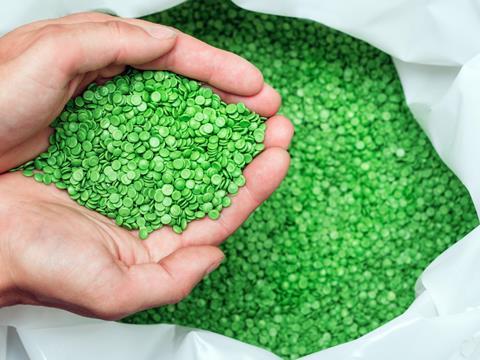
Trinseo, a specialty material solutions provider, has announced its new flame-retardant resins, manufactured without the use of per-and polyfluoroalkyl substances (PFAS) or halogenated additives.
Many PFAS chemicals are commonly used for their flame-retardant properties, as well as their resistance to heat, oil, stain, grease, and water. Trinseo says its new products maintain those performance attributes while addressing growing demand and regulatory pressures to reduce the use of PFASs, especially in the consumer electronics and electrical industries.
The products will be launched on the Asia-Pacific market first, suitable for applications in a variety of fields such as IT equipment, electronic and electrical products, battery chargers, and voltage stabilizers.
Apparently, both EMERGE 8600PR and EMERGE 7360E65 use post-consumer recycled (PCR) substrates, while maintaining a performance similar to virgin materials. The company says there are no intentionally added PFAS in the manufacturing process, and the recycled content facilitates waste reduction, carbon footprint reduction, and recycling in the consumer electronics industry.
Trinseo says the EMERGE PC 8600PV and 8600PR flame-retardant products do not have halogenated additives, are UL94 V0 rated (1.5 mm) for all colours, and have high-temperature, impact and UV resistance.
It adds that its EMERGE PC/ABS 7360E65 flame-retardant products have high flow, 65% recycled content, dimensional stability and are ideal for thin-wall applications.
“By leveraging our knowledge and technical expertise with PCR products, along with our insights into the consumer electronics and electrical industries, we are accelerating the development of products without the use of PFAS or halogenated additives. This is done in response to the market’s required shift towards sustainably advantaged solutions,” said Han Hendriks, Trinseo’s senior vice president and chief technology officer.
Trinseo will be at Booth F52, Hall 6.2 at this year’s CHINAPLAS 2024, held at the National Exhibition and Convention Center (NECC) in Shanghai, China.
At the end of last year, Trinseo announced its polymethyl methacrylate (PMMA) depolymerization plant in Rho, Italy, apparently enabling efficient recycling of PMMA-based materials. PMMA will be reportedly transformed through the recycling and purification process, in order to re-enter the plastics value chain and support circularity.
In January this year, Tosaf revealed two new processing aids for the extrusion of fluoroelastomer-free polyolefins, apparently unlocking the creation of PFAS-free, certified food-safe plastic films. Said to meet EFSA and FDA requirements for food-contact materials, the materials are hoped to replace conventional materials containing PFAS substances in a range of applications.
If you liked this story, you might also enjoy:
Report: The ultimate guide to global plastic sustainability regulation
The Brief: Oxo-(bio)degradables: the who, what, and why of breaking down fossil-based plastics
Sustainable Packaging Summit: How Kraft-Heinz uses collaboration to drive innovation
The Brief: Using ocean-bound plastic in packaging – how, why and should we?


















No comments yet